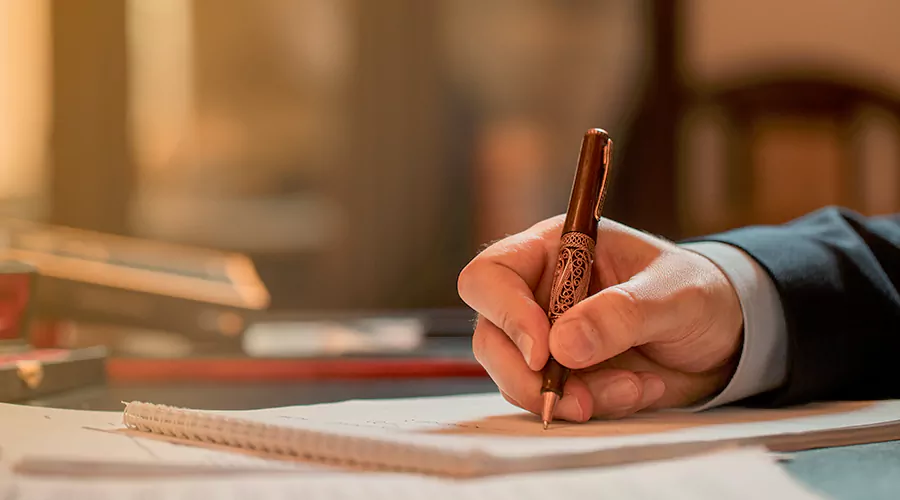In small claims cases, evidence plays a crucial role in supporting the claims made by the parties involved. While court is designed to be more informal than traditional court proceedings, it is still essential to present clear and relevant evidence to strengthen your case. You should organize and present information clearly and concisely. Be prepared to explain the relevance of each piece of evidence to your case. Keep in mind that the rules of evidence in small claims courts are often more relaxed compared to higher courts, but it is still essential to follow the specific procedures and guidelines of the jurisdiction.


Small claims service is dedicated to simplifying and streamlining the resolution of disputes for individuals and businesses. With a focus on efficiency and accessibility, we offer a straightforward process for navigating the complexities of small claims cases. From initial consultation to filing, documentation, and representation, our team is committed to guiding clients through every step of the process. We understand the unique challenges that arise and strive to provide a cost-effective and timely solution for our clients, ensuring their interests are well-represented and justice is served.
Presenting documents
In a case, effectively presenting documents is important to building a compelling argument and supporting your claims. Begin by meticulously organizing all pertinent documents, such as contracts, receipts, emails, or photographs, and ensure that you have multiple copies—one for yourself, one for the defendant, and any required for the court. Create a clear exhibit list to help both you and the judge navigate through your evidence. When presenting, maintain a logical order that corresponds to the sequence of events, and consider using highlighting or underlining to emphasize key points. Be ready to authenticate your documents, confirming their authenticity and relevance. Keep in mind the time constraints of cases, stay concise, and focus on the essential details.Presenting photographs
Presenting photographs as evidence in small claims cases is a compelling way to provide a visual narrative that supports your claims. Carefully select photographs that directly relate to the key issues in dispute, ensuring they are clear, relevant, and well-organized. Before the hearing, create an exhibit list that numbers and briefly describes each photograph to guide the judge through your evidence. When presenting, maintain authenticity by being ready to establish when and where the photos were taken.
Witness Testimony
Witness testimony plays a crucial role as evidence in claims cases. Witnesses can provide firsthand accounts of events, adding a personal and often persuasive element to the case. Parties should carefully choose credible witnesses, prepare them thoroughly, and use their testimony strategically to strengthen their case. The judge will consider witness testimony alongside other evidence to make an informed and fair decision.Bank Statements
Bank statements provide a clear and verifiable record of monetary exchanges, payments, and relevant financial activities. In cases involving contractual obligations, purchases, or disputes over payments, bank statements can serve as concrete proof of the monetary aspects of the disagreement. The judge may examine these statements to validate claims, track transaction timelines, and assess the financial responsibilities of each party.Contracts and Agreements
Contracts and agreements are a clear record of the rights, obligations, and expectations of each party involved in the dispute. In court, presenting a signed contract or agreement can be instrumental in establishing the agreed-upon terms and demonstrating the existence of a legal relationship. Contracts and agreements offer a tangible foundation for the legal aspects of the case, providing a structured framework that guides the court in making informed decisions based on the terms established by the parties involved.Correspondence
Correspondence, such as letters, emails, or other forms of communication, plays a significant role as evidence in small claims cases. When presenting correspondence as evidence in court, you should organize the documents, highlight relevant sections, and explain their significance during the hearing. Parties should be prepared to authenticate the correspondence and respond to any objections raised by the opposing party.
Receipts and Invoices
Receipts and invoices offer tangible proof of financial transactions and contractual obligations. These documents serve to verify payments made, itemize charges, and outline the terms and conditions of agreements between parties. Receipts provide evidence that a payment was received, while invoices detail the goods or services provided and their associated costs. They contribute to the quantification of damages in cases involving financial loss and help establish a timeline of transactions.Personal Records
Personal records, such as calendars, journals, or diaries, can serve as valuable evidence in small claims cases, particularly when they provide a chronological account of events relevant to the dispute. When presenting personal records as evidence, ensure that they are relevant, accurate, and can be authenticated. The judge will consider their admissibility based on their reliability and their connection to the issues in the case. Parties should be prepared to explain the significance of the entries in their personal records and how they contribute to the overall understanding of the dispute.File your evidence at least 30 days in advance
It is imperative that all parties involved adhere to the established timeline for case preparation and submission of evidence. To ensure a fair and organized legal process, it is strongly advised that all relevant documentation and evidence be filed at least 30 days in advance of the scheduled proceedings. This proactive approach not only allows ample time for the opposing party to review and respond appropriately but also contributes to the overall efficiency and effectiveness of the legal proceedings.Small claims service is dedicated to simplifying and streamlining the resolution of disputes for individuals and businesses. With a focus on efficiency and accessibility, we offer a straightforward process for navigating the complexities of small claims cases. From initial consultation to filing, documentation, and representation, our team is committed to guiding clients through every step of the process. We understand the unique challenges that arise and strive to provide a cost-effective and timely solution for our clients, ensuring their interests are well-represented and justice is served.








